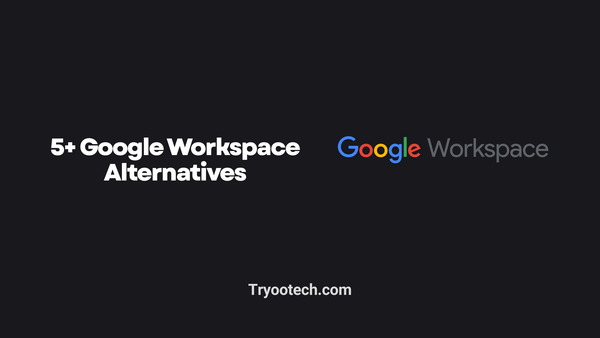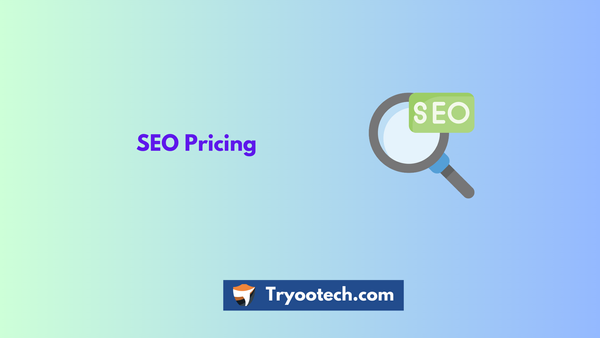10 Simple website optimization tips to Rank Better in Search

Whether you’re a blogger or a content marketing writer, WordPress allows you to create and publish quality content and stay connected to your audience. Today in this article I will share tips on wordpress website optimization for SEO.
Millions of users worldwide have chosen WordPress as their content management system (CMS) thanks to its features and options, which allow you to create a stunning website.
Although you can rely on WordPress themes to make your website visually stunning, you need to cover website optimization on your own.
Now, most of you were wondering what is website optimization? let me tell you.
Optimizing your website content is crucial for increasing traffic and engagement on your posts. You should optimize your site according to Google and Bing search algorithms. If your primary goal is to drive search traffic on your site then optimization is a must.
Everyone knows traffic from search engines converts well, you get sales, conversions, clients for your business without spending any single penny on Ads. This is cool, right? Yes, it is a cool and little bit hard as well, however, worry not, I will be sharing best practices you should follow to rank better in search results.
Luckily for you, there are simple WordPress hacks which can make a huge difference for your content.
Take a look at the list of 10 WordPress tips and hacks which will turn your content from mediocre to brilliant.
1. Keywords and Key Phrases
Let’s kick this off with the basics.
To boost your rankings and ensure Google recognizes your content as a great match for what your target audience is searching online, you need to use the right keywords and key phrases in everything that you write.
In other words, optimize your content by adding the right keywords exactly where they should be.
Of course, there are tools to help you make your content SEO friendly and find all the right keywords and phrases.
You can try out:

This is a tool more suitable for professionals. It helps you find the keywords, gain insight into your competitors’ strategy, and improve your overall ranking
Try 14 days free SEMrush trial

Using this tool, you can find high volume, low competition keywords that will help you to drive more organic traffic to your website.
Make sure you’re using the right keywords and it will make a huge impact on your content.
2. Meta descriptions and title tags
You should use keyword not only when writing an article, but also when writing meta descriptions and SEO title tags. Here are a few useful tips for you.
To create a perfect title tag, do the following:
- Put the focus keyword at the beginning of the title tag
- Add the name of your website at the end of the title
- Keep the length of an SEO title tag shorter than 60 characters
- Write a unique title tag for every new page you add your website
To write an ideal meta description, follow these rules:
- Describe your page briefly using the words that everyone can understand
- Keep the length of the meta description shorter than 160 characters
- Use the keywords in a natural, active, non-spammy way
- Make your meta description sound more like an ad copy
- Avoid duplicate meta description tags
3. Speed
Are you aware of the upload speed of your website?
If you have no idea how long does it take for your website to upload for your readers, you’ve got to go ahead and find out ASAP.
The uploading speed of a website influences whether or not the readers will stick around.
Here’s a couple of things you can do to speed up the uploading time of your website:
- optimized theme
Use a theme that is fast and has only the plugins you need. Don’t go using something with a million features you don’t even need.
Consider using a Premium theme, if you’re ready to invest some money in it.
- caching plugin
Find a caching plugin and enable it to server users cached copies of your pages. It will increase your load time. - well-coded plugins
Don’t go installing every plugin you come across. Do some research, pay attention to the rating, and choose only the best.
With your load time increased, you’re bound to have more visitors sticking around and enjoying your content.
4. Permalinks
When you’re optimizing your website, you need to pay attention to all the details.
Permalinks or the URLs of your website pages and posts can make a difference for both your average visitors and the search engines.
Here’s what you need to know:
- WordPress comes with a default permalink setting
- you can change it in settings –> permalinks
- instead of the default, choose post name
This way you changed your URL
- from www.yourwebsite.com/k=89?lo254
- to www.yourwebsite.com/interesting-post-name
This makes it easy to index by the search engines and your readers will memorize it easier.
5. Social Media
To optimize your WordPress content even further, you need to enable your website visitors to connect your content to social media.
Luckily for you, there are social media plugins you can use to:
- enable sharing your content by the visitors
- enable you to schedule and post on your social media accounts
- enable visitors to log in to your website with their social media accounts
- enable visitors to tweet the quotes from the articles
This will make a difference for your visitors and will contribute to the optimization of your content remarkably.
6. Images
Images can take up a lot of speed on your website and slow it down with their heaviness. Also, the way you name our images affects your SEO.
To make your website more optimized, you should optimize all the images you upload. Here’s what you can do:
- compress them
Make sure your images’ size is reduced so as to avoid slowing your website up. Try Smush.it, a WordPress plugin that automatically compresses all the images you upload, making them smaller and less heavy for your website. - name and description
When uploading an image, make sure you take a minute of your time to name it properly, write a short description and alt text. This will influence your SEO rankings positively
These rules are applicable to all types of media files, including photos, screenshots, graphs, and infographics.
Don’t just upload an image without giving it a little thought. These seemingly minor touch-ups can optimize your content significantly.
You can also use tools like Shortpixel to compress your images.
7. Broken Links
You definitely don’t want your visitors to click on a link which leads them to a broken page or shows an error on the screen.
In addition, you definitely don’t want Google to recognize too many broken links and mark your site as not being properly maintained.
Therefore, you need to detect, fix, or remove any broken links on your website.
You can use the Broken Link Checker WordPress plugin as a helping hand for:
- monitoring links
- detecting broken ones
- sending you notifications
- preventing search engines from detecting those links
Make sure you maintain your website regularly and don’t allow for broken links to stack up. Unlinking 404 pages from your site is the best website optimization practice.
8. High-Quality Content
Finally, a quick reminder.
The quality of your content is what will make the biggest difference for your readers, and determine whether or not they plan on coming back.
Quality content is:
- informative
- entertaining
- useful
- perfect in terms of grammar
- valuable
- helpful
If you need help with anything you’re writing, check out these writing companies which might help.
Also, keep in mind that the content you create must be scannable and easy to read. It will help you to boost your marketing efforts and improve the SEO ranking of your website. To improve the text’s readability score, do the following:
- keep all sentences short (if a sentence is longer than 20 words, break it down into two short sentences)
- don’t overuse passive voice
- use bullet lists
- use subheadings
- keep your paragraphs short (two-three sentences per paragraph are enough)
- don’t overuse adverbs
- use simple words (write the word “daily” instead of the phrase “on a daily basis”; choose the word “use” instead of “utilize”)
9. The perfect post length
The length of the blog post also matters.
In 2019, posts shorter than 500 words do not work. If you want to optimize your website for SEO, you should create posts longer than 1000 words.
In fact, every website is unique, and there is no “perfect post length” that suits every site. So the best thing you can do is to write a few 1000, 1500, and 2500 words long posts and see what will work the best for your website.
10. Regular updates
And here is one more important thing that is worth mentioning. If you want your WordPress website to work effectively, you should publish new content regularly. The more often you will add new articles to your site, the better.
HubSpot’s study shows that websites that publish 16-plus blog posts monthly receive 3.5 times the amount of traffic as websites that publish only 0-4 posts monthly. It means that if you want to achieve better results, you should create more than four posts per week.
Conclusion
Website content optimization is obligatory if you want your visitors to stay loyal. You need to invest your time and energy into making the best possible version of your website available to all your visitors.
The advice above will help you come up with your personal optimization strategy. Choose the steps you find most suitable for your website and your needs, and start applying them today.
Author’s bio.
Daniela McVicker is a passionate digital marketer. Daniela is interested in everything related to SEO and blogging. She collaborates with RatedByStudents and other websites where she shares her experience and helps marketers make their name in the online world.





